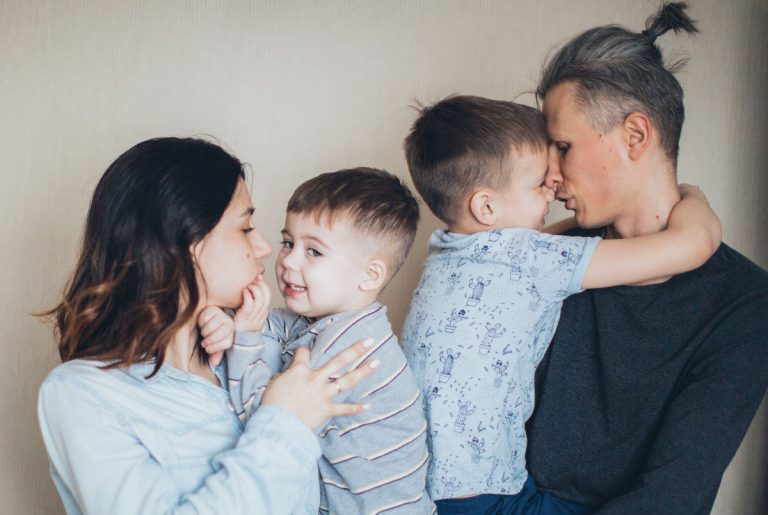According to the Australian Institute of Health and Welfare, a substantial portion of the population will experience a mental health issue – 1 in 5 in the past 12 months. Considering these numbers, it’s likely that mental illness will affect you or a loved one at some point in your life.
Although supporting a family member or friend with mental illness can leave you feeling helpless, research suggests that social connections are integral to mental health – and there are many things you can do to help your loved one in their time of need.
The link between relationship health and mental health seems intuitive, although it is often undervalued in mental health services. The positive effects of good relationships on mental wellness are plentiful. Social connections lead to better mental health, higher self-esteem, greater feelings of empathy and a more robust immune system.
Unfortunately, partners, parents, caregivers, or social supports are often left out of treatment, even though they may be critical to its success.
The role of relationships in mental health treatment
In the traditional model of mental health, the person seeking treatment is the primary focus, and the alleviation of symptoms is the goal. This approach is still common, despite the evidence supporting the importance of relationships in the treatment of mental illness.
In some instances, relationship and family dynamics can seem to be part of the mental health problem. Longstanding conflict, estrangement, intrusive, abusive, or overbearing people, trauma, domestic violence or drug and alcohol problems can all take their toll.
However, often a person’s village is integral to their treatment outcomes. Family, friends, and other caregivers know us at our best. They are best placed to notice the signs and speak on our behalf if something isn’t quite right. They can tell if medication isn’t being taken, if we haven’t left our rooms, have given up on social opportunities and are losing confidence and hope. They can be our advocates, cheer squads and active agents to help us get back on track.
What role can friends, family and caregivers play when supporting someone with mental illness?
Not only are positive relationships central to good mental health, family and caregivers can help reduce symptoms such as suicidality, anxiety, and depression, as well as increasing treatment compliance and self-empowerment.
Supporting someone with mental illness can be rewarding, but it also can be demanding. Mental health challenges can be situational, temporary, and unusual, or they could be part of something requiring long term management and the circumstances will likely impact on how much support you can offer. No matter the challenge, we would all hope that if there are difficult times, we will have good people at our backs.
Here are some helpful things to consider when supporting someone through mental illness.
Be vocal about your support
It may seem simple but letting your loved one know you care and that you’re there for them can be very powerful. Oftentimes, sufferers of mental illness feel very isolated and like they are a burden on those around them, so your reassurance is invaluable.
Offer assistance
A person struggling with their mental health will need different types and degrees of assistance depending on the issue. They may need practical help, like someone to take them to their appointments, healthy meals for the freezer or an extra set of helping hands for their children or pets, or they could simply need a person to talk to or someone to keep them company.
Decide together what they need and what you can do to help. You might find that your friend or family member is apprehensive to ask for help or is unable to state what they need, in which case you need to take initiative.

Have some self-awareness
Be aware of your physical and emotional limitations and set clear boundaries. Consider how you are placed in your own life – what other needs and demands do you have and where do you feel best placed to assist? It’s okay if you can only manage weekly phone calls or an occasional night out. Being clear about this will mean you have a greater chance of committing and sustaining what you have offered.
Have support for yourself
It’s not uncommon for caregivers to have mental health issues themselves, either at the same time or because of the caring responsibilities. It is critical that you look after your own wellness and resilience.
Remember your original role
If you are a good friend, then perhaps also becoming the nurse, advocate or lawyer of the person you’re caring for might impact on that. Often assisting with finding the resources rather than being the resources will serve everyone better in the long run.
Keep things in perspective
Keeping perspective when helping a loved one with mental illness can require a neutral place for you to debrief from the caregiving experience. If you start to feel like a critical prop in the whole plan, and that if you don’t fulfil a certain role, it will fall over, then that means there are not enough people in the mix. It shouldn’t all rely on you.
Don’t make promises you can’t (or shouldn’t) keep
Be wary if you are asked to make commitments that seem secretive or detrimental to a person’s recovery. These could include: “never call the mental health team”, “don’t tell my partner I’ve stopped taking my meds” or “cover for me at work”.
Encourage them to seek professional help
Struggling with mental health challenges is something we will all encounter at one stage or another in our lives. It might be temporary and pass in its own time, or it might require greater intervention. Good friends, family, and employers can offer invaluable support but where there is a bigger battle underway, they should take their place alongside mental health experts.
There are many barriers to seeking help for mental illness – shame, fear, finances. Whatever the reason, if your loved one is yet to seek professional help, encourage them to do so.
Relationships Australia NSW offers a range of specialised counselling services to support individuals, couples and families working through difficulties, helping them find ways to move forward.
Related Services & Workshops

Counselling.Families.Life Transition
Family Counselling
Our trained and compassionate family therapists provide Family Counselling services online and in-person throughout NSW. Family Counselling provides a safe space to address problems, hear each other’s perspectives, overcome difficulties, improve communication, and restore and strengthen relationships.

Counselling.Individuals.Older People.LGBTQIA+
Individual Counselling
Life can be full of ups and downs. While we may be able to overcome most challenges by ourselves, sometimes we need some extra support. Individual Counselling offers a supportive environment to identify and manage problems and concerns.

Counselling.Families.Mental Health
Adolescent Family Counselling
The teenage years can feel like an emotional minefield – and knowing how to support an adolescent can seem equally as daunting. Adolescent Family Counselling aims to restore and repair relationships by providing strategies to support teens and their families through significant life changes.






